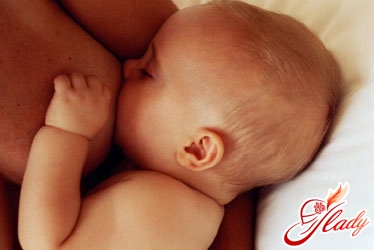 Despite the fact that in the modern world the standardbeauty and attractiveness is considered to be slimness, if not to say more - thinness, all mothers without exception want to see their babies well-fed. And not only mothers, but all compassionate relatives try to feed a skinny baby, and each of the adults feeds the baby as he considers necessary for the child to gain weight. The main question in the family is "the child does not eat well, what to do?" Many parents believe that a large amount of food is necessary for the normal development of the child, and by hook or by crook, and if the child eats very poorly, they, despite the reluctance and protest of the child, force him to eat everything that is put on his plate. And sometimes they put oh so much, a portion would be enough for an adult with his head. As a result, the baby, sobbing and choking, is forced to force himself to eat the food offered to him. Such measures of coercion to eat will not bring the desired result, but they can create a lot of problems. For example, a sad result of force-feeding can be:
Despite the fact that in the modern world the standardbeauty and attractiveness is considered to be slimness, if not to say more - thinness, all mothers without exception want to see their babies well-fed. And not only mothers, but all compassionate relatives try to feed a skinny baby, and each of the adults feeds the baby as he considers necessary for the child to gain weight. The main question in the family is "the child does not eat well, what to do?" Many parents believe that a large amount of food is necessary for the normal development of the child, and by hook or by crook, and if the child eats very poorly, they, despite the reluctance and protest of the child, force him to eat everything that is put on his plate. And sometimes they put oh so much, a portion would be enough for an adult with his head. As a result, the baby, sobbing and choking, is forced to force himself to eat the food offered to him. Such measures of coercion to eat will not bring the desired result, but they can create a lot of problems. For example, a sad result of force-feeding can be:
- Aversion to any food. If a child is forced to eat through strength, very soon he will develop a persistent subconscious reflex refreshing to food. Any attempt to feed a child will lead to uncontrolled attacks of vomiting. As a result, the child will eat even less than now - the circle will close, the problem of low weight will only worsen.
- Violation of the normal process of digestion. In the event that the body receives more food than it needs for normal functioning, the digestive system will inevitably overload. The consequence may be a violation of its normal functioning and, as a consequence, the occurrence of diarrhea and even dysbiosis.
- Excess body weight. The above is the most common result of the child's forcible feeding. Much rarer, but still sometimes there is such a complication, as an overweight child. The scheme of its occurrence before the banality is simple - an organism that constantly receives an excessive amount of food, at the end, adapts and rebuilds, resulting in a tendency for the child to become overweight. And being overweight will not bring your child anything but a sea of problems.
By the way, the problems will be the mostdiverse – from health problems to psychological problems. So is it worth raising your child to be an insecure and complex person for the sake of satisfying your ambitions with your own hands?
Is there a problem?
Before you start panicking aboutyour child is underweight, make sure that the problem of underweight in your child really exists. All pediatricians with enviable consistency encounter cases when frightened mothers come to them with complaints that the child is underweight. But upon examination and weighing the child, it turns out that the baby, despite all the fears of the mother and the "horror stories" of relatives, fully complies with age norms. In addition, in addition to age norms, doctors take into account such an important aspect as harmonious physical development or, in other words, the correspondence of height and weight. But parents of a very small child must be very attentive and immediately respond to the deterioration of the child's appetite. Unfortunately, as a rule, if a baby does not eat well, doctors discover serious health problems. For example, lack of appetite in a newborn baby may indicate such a formidable complication as intestinal obstruction. And if a 3-month-old child does not eat well, you can suspect dysbacteriosis in the baby.
Thin baby
If your fears were not in vain, andAfter the examination and assessment of your child's physical parameters, the doctor confirms the lack of body weight, it is necessary to find out the reason. It is also impossible for parents to do this on their own, so it is worth leaving this task to doctors - pediatricians. Doctors distinguish two types of thinness:
- Healthy thinness.In this case, your baby's increased slimness is due only to a genetic predisposition to low body weight. As a rule, either mom or dad, and sometimes both parents at once, also cannot boast of particularly large clothing sizes. There is an opinion that in such cases, with low body weight, the baby's height should also be quite small. However, this is a pure misconception - there are many thin, but tall people who have absolutely no health problems.
- Pathological thinness.If the weight deficit is caused not by physiological characteristics of your child's body and not by hereditary factors, but by some systemic diseases of vital organs, doctors speak of pathological thinness. In order to help the child gain the necessary body weight, one corrective diet is not enough, the baby needs treatment of the underlying disease.
Many parents complain not only about lowbody weight, but mainly on the child's poor appetite, up to its complete absence. But everything is not so simple - it is quite difficult to give a clear answer on how to make a child eat. The absence or deterioration of appetite in children can be caused by a variety of factors:
- Recently suffered diseases.
That during illness appetite in mostcases disappears completely, any person experiences it periodically. And children are no exception to this rule. For example, a banal acute respiratory disease or chickenpox can completely kill a child's appetite. As a result, the child can lose a lot of weight during the illness. Parents should not be afraid of this phenomenon - after your child recovers and his appetite returns, he will very quickly return to his previous shape. However, remember the need for a smooth and gradual return to the usual diet. This is necessary in order not to overload the child's digestive system.
- Psychological aspects.
If your child eats very poorly, refuseseven from previously favorite foods, but doctors have not found any health problems, pay attention to the psychological state of the child. The reasons for the loss of appetite for a child can be a variety of factors, such as problems in communicating with peers or teachers in kindergarten, force-feeding. All this keeps the child in constant nervous excitement, which cannot but have a negative effect on his appetite. By the way, very often a child does not eat well in kindergarten precisely because of conflicts with teachers. Another very common reason for a child's refusal to eat is banal childhood jealousy, especially when a younger child appears in the family. In such cases, when psychological factors are the reason for refusing to eat, parents should contact a child psychologist who will tell you how to cope with these problems and restore the child's normal appetite.
- Hidden diseases.
In case the child has a loss of appetiteis accompanied by increased lethargy, apathy, rapid fatigue, parents should seek medical help as soon as possible. Such a child needs an immediate medical examination and a number of diagnostic tests - a general blood and urine test, ultrasound diagnostics of internal organs. Unfortunately, most often such a condition of the child indicates the presence of a serious disease that requires immediate treatment.
Glistular invasion
It is no news to anyone that the presence in the bodyA child with parasites also often leads to a child's loss of appetite. And if your baby is underweight and has a poor appetite, you should not exclude this possibility - be sure to undergo an examination for the presence of parasites in the child's body. Perhaps this is the reason why the child does not eat well. Do not hope that you do not see worms in the child's feces - this does not mean that they are not in the child's body, and worms are very different, not always visible to the naked eye. The risk of infection with worms is especially high in those children who have a habit of putting everything in their mouth, as well as in the event that animals live in the house. Many parents neglect the need to carry out periodic prevention of helminthic invasions. The opinion of doctors on this matter also does not always coincide - some doctors advocate regular prevention, others believe that toxic pharmacological drugs have not only a detrimental effect on parasites, but also a negative effect on the child's body. Probably the most correct solution in this situation would be regular examination for parasites, and if they are found, treatment.
Violation of the daily routine
Very often problems with underweightarise as a result of problems with the normal daily routine. An adequate daily routine is necessary for the full harmonious development of the child. If you realize that your daily routine needs to be adjusted, be sure to start adjusting them as soon as possible. It is very important that the child knows exactly when he needs to go to bed in the evening. Healthy night sleep is very important for a growing body - do not neglect it. A few hours before going to bed, eliminate all irritants that can have a stimulating effect on the child's nervous system and disrupt restful sleep. No less attention should be paid to the issue of waking up in the morning. It is much wiser to get up half an hour earlier, calmly get ready for kindergarten, talk to the baby on the way, and not freak out because you can't find something in a hurry, rushing headlong to kindergarten. You understand that an out of breath, nervous child is unlikely to have a full breakfast. It is with such little things that serious problems with a child’s appetite begin.
Forced feeding
On the problem of forced feeding of a childIt has already been mentioned above. But it is worth discussing this in more detail. The fact that food, in addition to satisfying the body's physiological need for nutrients, should bring moral satisfaction, does not need any proof. However, when it comes to children's nutrition, adults very often simply forget about it. But for a child, a favorable atmosphere during a meal is no less important than for an adult. Imagine a situation in which someone really offends you during a meal. It is unlikely that you will be able to continue eating with the same appetite. But your child is the same person with similar feelings and emotions. And your "eat immediately!" will only make the situation worse. You do not want your child to associate eating with burning resentment and bitter tears, do you? In addition, do not forget about such a feature of child psychology as the spirit of contradiction, especially strongly developed in children of two or three years old. And the more actively you force the child to eat, the more actively he will resist any attempt to feed him, even if the child is actually hungry. In this situation, it is much wiser to give the child the right to choose - to eat or not.
Child's diet regime
However, under no circumstances should the process be abandoned.to its own devices - if you want, go eat, if you don't want, don't eat. You shouldn't force your child to eat, but in no case should you allow "snack-eating" - snacks between main meals. Of course, any mother tries to feed her child at least something - and she gives the child an apple, candy, cookies, and the like at the first request. Of course, after all these snacks, it will be almost impossible to persuade the child to eat soup or a cutlet. Therefore, despite the most ardent and pitiful requests of your child, do not give the child any food products between meals. And, by the way, the same applies to drinks - milk, compote or tea can greatly ruin the baby's appetite. If the child is thirsty, offer him clean drinking water. Often, it is snacks that cause the child to eat poorly.
Play with food
As you know, play is a game for a childa vital element of development. Play, interest your baby. First, the child should have his own strictly defined place at the table. Pay attention to the dishes - together with the baby, choose beautiful dishes intended specifically for him. As a rule, the baby actively eats the dish that mom puts in this plate for him to look at the picture on the bottom of the plate again. Watch your baby carefully, especially his taste preferences. Try to offer the products that your child likes as often as possible. Be sure to take into account his taste preferences - this will help to avoid many problems. For example, the child does not eat vegetables well. Do not force him to do this by force - it is better to offer him a piece of meat or fruit, the child does not eat porridge well - offer him soup. Do not forget that the lack of any vitamins will negatively affect the child's appetite. Consult your pediatrician about which vitamin and mineral complex is best for your baby. And don't forget about natural sources of vitamins - vegetables and fruits. And finally, it is necessary to mention the most important feature of the body of a child of three to five years. At this age, much fewer nutrients are needed for development and maintenance of normal life than at any other age. That is why a small child eats poorly. And the only task of parents is to ensure that the baby's diet is complete and varied. We recommend reading:









